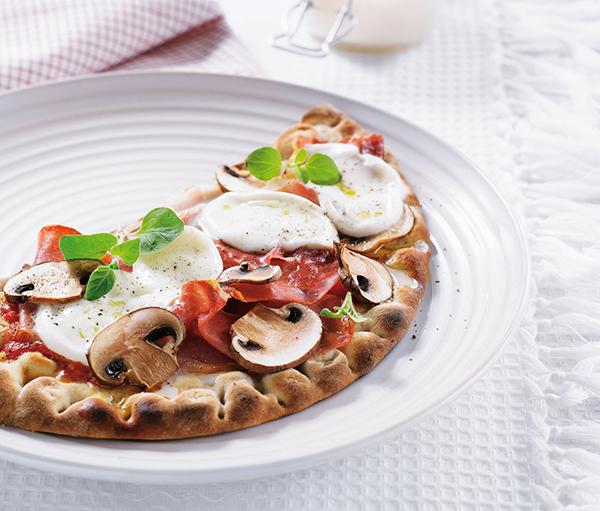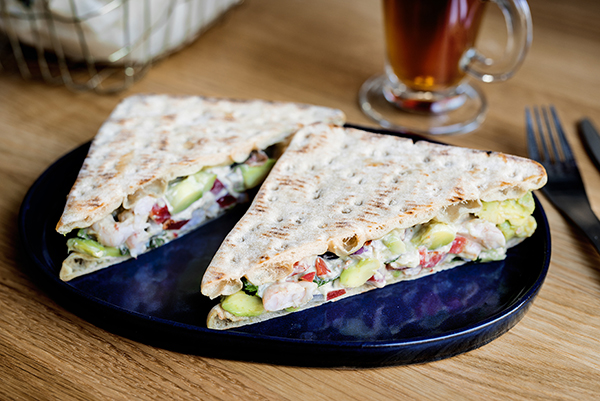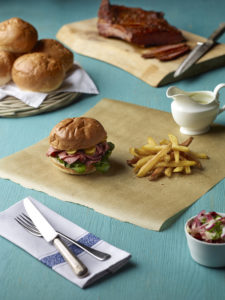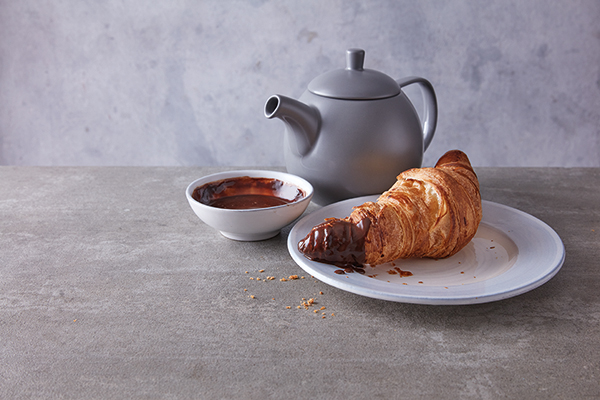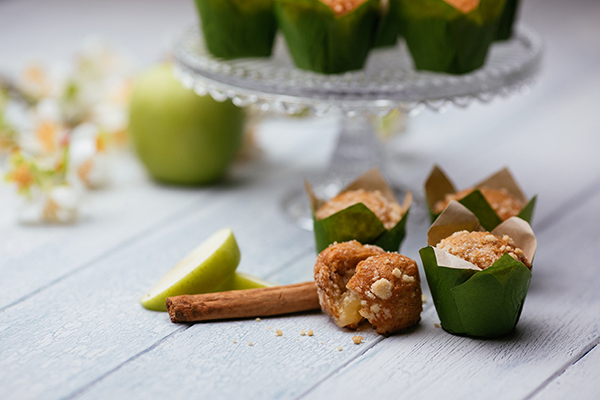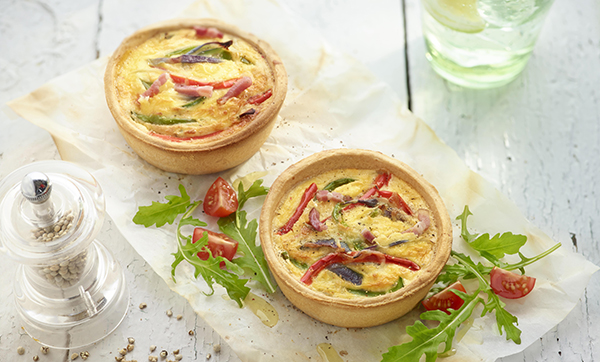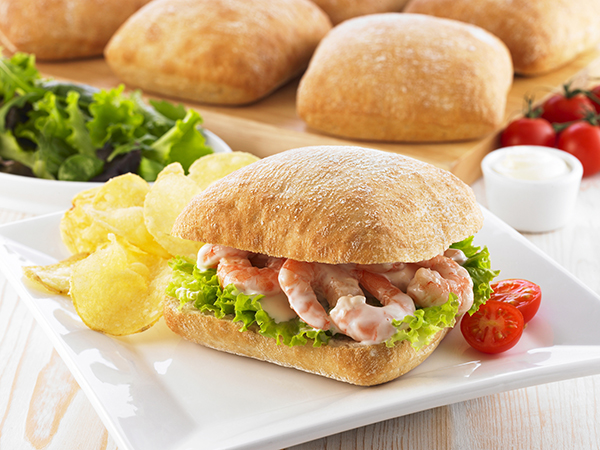Baked goods: From Portuguese tarts to squid ink loaves, make the most of your offering to satisfy the growing market
Current trends in baked goods can act like yeast on profit margins. Anne Bruce explains the attractions of squid ink loaves, vegan flatbreads and two-bite tarts for customers and operators
W
Scandi, French, Greek, Asian and Latin flavours are a great place to start, but thatâs only the beginning, as the more than 8.3 million #bakery posts on Instagram make clear.
As well as being Instagram-friendly, bakery needs to accommodate a rising tide of customers with special dietary requirements, such as gluten-free, dairy-free and vegan. Food allergen issues have also come to the fore, with products containing nuts and sesame seeds increasingly avoided in foodservice.
Other boxes to tick for baked goods might be provenance, artisan appeal and added value and, moving onto practical considerations, extended shelf life. And did anyone mention that all this has to be done to ever tougher margins and possibly in-house?
Operators are looking for reassurance that allergens have not been used in the production process, according to David Hall, managing director of foodservice wholesaler the London Bread & Cake Company. âWhile many businesses already labelled allergens anyway, there was a knee-jerk reaction, particularly from schools, after the Pret case,â he says. âNow people are turning away, for example, from nut-free products if they are baked with nuts on the site. We are trialling poppy seeds as an alternative to sesame for some customers.â
Free from
This stricter approach to allergens ties in with an exponential rise in consumers demanding free-from foods. Bakery goods that do not raise dietary red flags are a quick fix and may also be good news for operators as they offer favourable margins.
âBread that is suitable for a range of dietary requirements can make life easier for all caterers, especially as demand for vegan products continues to grow and thereâs a growing awareness of allergies,â points out Jenny Jeppsson, concept manager at Swedish flatbread company Polarbröd. She adds that the companyâs vegan, sesame seed and nut-free range of flatbreads and thinbreads is proving popular in the UK.
Gluten-free bakery also remains popular and options that incorporate interesting alternatives to standard wheat flour are coming to the fore, suppliers say.
Tasneem Backhouse, joint managing director at EHL Ingredients, says that baked goods derived from ancient grains such as quinoa, spelt, teff and millet are bang on trend. Gram flour, buckwheat flour, coconut and almond flours, and organic rice flour are also in vogue, she adds.
Margin magic
This is all good news for margins too. âConsumers expect to pay up to 50% more for ancient grains bread than standard bread,â says Barbara Lunnon, product marketing director at CSM Bakery Solutions. âWhile itâs recommended to offer classic white bread for traditional consumers, choosing an artisan or premium bread can give added value to customers and drive sales.â
Vegetable flours, such as pea, beetroot and even lentil also fit with the zeitgeist. Vibrant red, pink and green wraps, pittas and flatbreads appeal to health-conscious consumers and the Instagram generation. And at the higher end of the market, breads that are flavoured and coloured with charcoal or squid ink, for example, can deliver excellent margins, according to Hall.
Breads of other world cuisines also offer a point of difference. While naan, tortilla, bagels and pretzels are obvious choices, new overseas influences are coming through. Swedish and Scandinavian breads are now more well known in the UK, and South American, Mexican and Middle Eastern cuisines are all seeing strong consumer interest, says Simon Cannell, managing director of Speciality Breads.
âI expect flatbreads to continue to take menu space,â he predicts. âWhether used for dips and hummus or when topped with grilled lamb, beef, chicken or vegetables, they are a blank canvas for creative chefs.â
Sweet treats
Kate Sykes, marketing manager, at Lantmännen Unibake UK, says her top sales tip is the Portuguese custard tart or pastel de nata. It is one of the fastest-growing products in the UKâs sweet pastry category, according to IRI data for 2018, with 12.6 million consumed out of home last year. Selling these two-bite tarts can increase profit margins as consumers are willing to pay more for authenticity, she suggests.
Another recommended product for operators considering updating their bakery range is a quintessentially British bake. âA baked good that is perfect for restaurant and café menus is scones,â says CSMâs Lunnon. âScones are extremely easy to make and offer a good profit margin, making them a perfect item to stand out on menus with minimal effort.â
As the snacking trend grows, bite-sized desserts are a must-have, she adds. A bite-sized dessert allows consumers to have fun and try more things, and it attracts more customers.
A head start for your own bakes
Gordon Lauder, managing director of frozen food distributor Central Foods, recommends offering small options as a win-win for the health-conscious consumer and the margin-conscious operator. âMini options of some of Britainâs favourites, such as doughnuts and muffins, fit really well with a number of current trends in food to go,â he says. âThey can be popped into a bag to take out, or can be eat-in.â
Competition in foodservice is fierce and consumer expectations are higher than ever, so operators have to keep monitoring trends and have had to up their quality and variety game in recent years, Cannell says. His company has had an enthusiastic reaction to the launch of its first range of frozen doughs this year â" dough that can be defrosted and shaped by chefs on site and on demand. âFor chefs looking to craft and bake their own breads in-house but who maybe donât have the space, facilities or time to do so from scratch, this range really is perfect.â
For Fabien Levet, national account manager for foodservice at Pidy UK, thereâs a lot to be said for the middle ground â" buying in products such as speciality flours and inclusions and ready to fill pastry cases, and using them to bake products that have added value. These can also be sourced to safely meet special dietary requirements. Pidy, for example, sells gluten-free pastry cases.
âUsing a ready-to-fill pastry is an excellent solution because the products can be finished off in the oven, which still provides that delicious smell,â he says. âThis saves valuable time and resources, but still allows operators to produce products from scratch.â
Sykes, on the other hand, advocates buying frozen to bake off to gain the benefits of reduced wastage and easy to manage stock levels. Frozen bakery products also allow outlets the freedom to offer a range of quality products, with minimal labour requirements, and without the inconvenience of storing fresh ingredients, she says.
Whatever system works best for your business will probably be fine with your customers if it results in interesting, high-quality and, letâs not forget, photogenic products.
There is one further hoop to jump through when you have prepared your ancient grain breads, your vegan doughnuts and your allergen-free, multicoloured loaves â" or even just your mini pain au chocolats. Let people know about them!
Finished goods should be advertised on menu boards to make sure that customers are aware of whatâs on offer, âas well as advertising them around the venue with materials such as table toppers to help attract new and repeat customers,â suggests Anna Sentance, gourmet marketing manager at Callebaut UK and Ireland.
So put your baked goods on display. Youâve got a licence to thrill.
Suppliers
Callebaut www.fortheloveofchoc.com
Central Foods www.centralfoods.co.uk
CSM Bakery Solutions www.csmbakerysolutions.com
EHLÂ www.ehl-ingredients.co.uk
Lantmännen Unibake UK www.lantmannen-unibake.co.uk
London Bread & Cake Company www.londonbread.com
Macphie www.macphie.com
Pidy www.pidyuk.com
Polarbröd www.polarbrod.com
Speciality Breads www.specialitybreads.co.uk
The banned wagon: the latest in free-from, vegan and vegetarian products >>
Sweet talk: the newest trends and latest products in chocolate and pâtisserie >>



